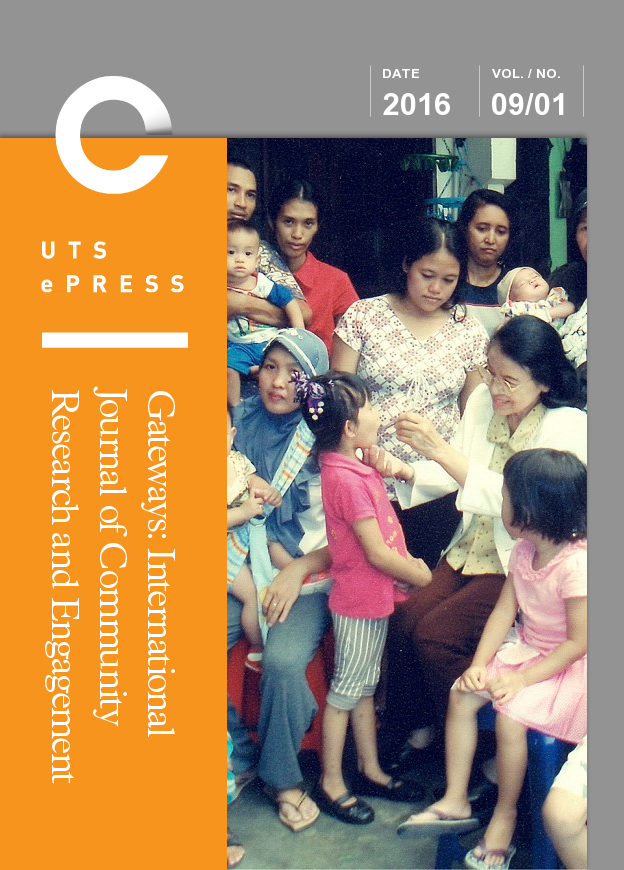Fundamental researcher attributes: Reflections on ways to facilitate participation in Community Psychology doctoral dissertation research
Main Article Content
Abstract
As novice researchers, Community Psychology doctoral students encounter fresh challenges when they attempt to facilitate participation by members of the community in their dissertation projects. This article presents the merit in adopting fundamental researcher attributes, which have been described in published academic literature as personal characteristics that facilitate participation by members of the community in research studies. The value of these researcher attributes is exemplified in the discussion of one of the author’s experiences in the early stages of his dissertation research process. This article also presents new researcher attributes for facilitating participation by community members that the author recognised after critical reflection on his experiences during the same research process. Cultural humility, shared vulnerability, reflexivity, methodological flexibility, academic assiduity and creative resourcefulness are researcher attributes doctoral students should consider adopting and developing if they intend to facilitate participation by members of the community in their dissertation projects.
Keywords: researcher attributes, graduate students, doctoral dissertation, participatory research, participation continuum
Article Details
Issue
Section
Authors who submit articles to this journal from 31st March 2014 for publication, agree to the following terms:
a) Authors retain copyright and grant the journal right of first publication with the work simultaneously licensed under a Creative Commons Attribution License that allows others to share and adapt the work with an acknowledgement of the work's authorship and initial publication in this journal.
b) Authors are able to enter into separate, additional contractual arrangements for the non-exclusive distribution of the journal's published version of the work (e.g., post it to an institutional repository or publish it in a book), with an acknowledgement of its initial publication in this journal.
c) Authors are permitted and encouraged to post their work online (e.g., in institutional repositories or on their website) prior to and during the submission process, as it can lead to productive exchanges, as well as earlier and greater citation of published work (See The Open Access Citation Advantage Service). Where authors include such a work in an institutional repository or on their website (ie. a copy of a work which has been published in a UTS ePRESS journal, or a pre-print or post-print version of that work), we request that they include a statement that acknowledges the UTS ePRESS publication including the name of the journal, the volume number and a web-link to the journal item.
d) Authors should be aware that the Creative Commons Attribution (CC-BY) License permits readers to share (copy and redistribute the work in any medium or format) and adapt (remix, transform, and build upon the work) for any purpose, even commercially, provided they also give appropriate credit to the work, provide a link to the license, and indicate if changes were made. They may do these things in any reasonable manner, but not in any way that suggests you or your publisher endorses their use.
For Volume 6 (2013) and before, the following copyright applied:
Articles published by UTSePress are protected by copyright which is retained by the authors who assert their moral rights. Authors control translation and reproduction rights to their works published by UTSePress. UTSePress publications are copyright and all rights are reserved worldwide. Downloads of specific portions of them are permitted for personal use only, not for commercial use or resale. Permissions to reprint or use any materials should be directed to UTSePress.
